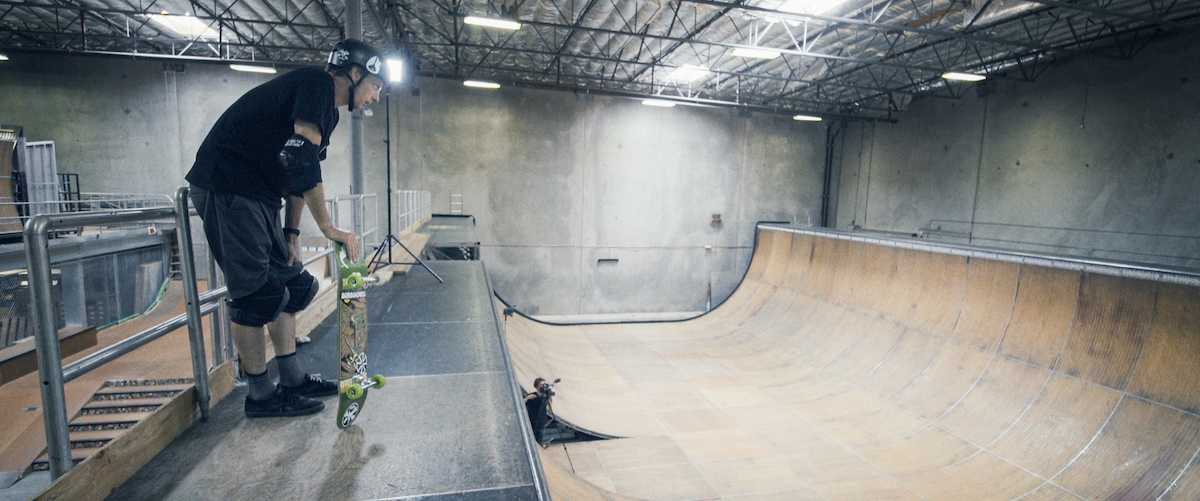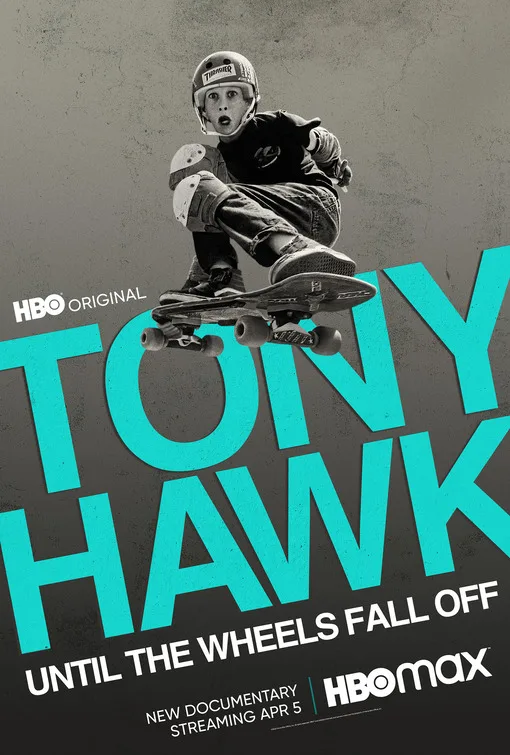“Tony Hawk: Until the Wheels Fall Off” is a documentary about the most popular skateboarder alive, but it’s also about capturing his secret sauce. Director Sam Jones (and executive producers Mark and Jay Duplass) dedicate their focus on Hawk’s life story to distilling its bruising examples of success, innovation; of not concerning oneself with failure, even when you just slammed your head against the ground trying to do something your peers consider impossible. At the same point, despite all of the medals he received at competitions, Hawk doesn’t seem to concern himself with winning either. He just wants to do the trick that’s in his head, and land it.
Hawk’s career is known for being a brand, a cameo across ’90s and ’00s pop culture, a lanky dude who presents himself as kind and also extremely, nerdily good at what he can do. But that all traces back to him once being a super-determined teenager, who created his own space in the growing popularity of ’80s skateboarding, to the dismay of his older, bigger, far more punk peers. Part of the intrigue from this documentary comes from how Jones fills in the scene, with former skating hotshots like Duane Peters talking about being unimpressed with the elaborate tricks that Hawk was doing during their competitions, or the more philosophical Rodney Mullen intellectualizing what Hawk was achieving.
Becoming so good at skateboarding led to peaks and valleys of fame and success for Hawk, which Jones incorporates into the story’s generally chronological view of a career that thrived depending on the popularity of skateboarding. Meanwhile, Hawk was further grounded by the focus on his family dynamics; he was the youngest child by many years, and his father, Frank Hawk, helped create the National Skateboarding Association, but also created a shadow for the growing Tony. That amount of success at a young age doesn’t teach you financial responsibility.
The soundtrack to this may be full of different punk eras (with some recognizable needle drops feeling more stock than others), but the documentary has its edges softened by the straightforward style. It becomes like many glory days docs, in that it looks back on a certain phenomenon with a collection of amazed words from everyone who was there, but doesn’t feel as fast-energy by its storytelling methods. It’s exciting to learn about Hawk’s origins, and the traits that led to such a stand-out career, and yet it’s telling when this sports maverick’s tale is being told in a fairly rudimentary way.
Jones’ film has a reverence for Hawk but does not let that turn his piece into hagiography—the skateboarder is given time to mention the things he did not excel at in his personal life due in large part to his focus on skateboarding. He talks about fame being “the worst drug,” and it’s interesting to hear words on that from such an unlikely celebrity. But true to the doc’s superficial tendencies, its ability to dissect larger subjects only goes so deep. And when the documentary tries to go deeper into the toll of skateboarding on aging bodies, for Hawk and his peers, those final notes are too stretched out to be poignant.
“Tony Hawk: Until the Wheels Fall Off” shines brightest when it resembles something like the Alex Honnold free-climbing documentary “Free Solo,” honing in on Hawk’s episodes of hard-earned failure, of slamming his body to the ground countless times and getting back on the board. A gripping opening sequence frames Hawk as like Sisyphus on a skateboard, constantly going at the task at hand—in this case, performing another 900. Time and time again, modern-day, 53-year-old Hawk gets on the board, drops down the half-pipe, speeds himself up, and in one way or another doesn’t complete the mid-air spin. But he doesn’t stop pursuing it. Watching Hawk in this documentary helps one appreciate how pulling off such a trick is not a physical feat, so much as a mental one.
Now playing on HBO Max.




















